Filter by
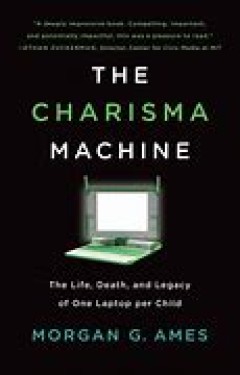
The Charisma Machine: The Life, Death, and Legacy of One Laptop per Child
A fascinating examination of technological utopianism and its complicated consequences.OCLC-licensed vendor bibliographic record.
- Edition
- -
- ISBN/ISSN
- 026235389X
- Collation
- 1 online resource.
- Series Title
- -
- Call Number
- -

Emotion in Games Theory and Praxis
The core message of this book is: computer games best realise affective interaction. This book brings together contributions from specialists in affective computing, game studies, game artificial intelligence, user experience research, sensor technology, multi-modal interfaces and psychology that will advance the state-of-the-art in player experience research; affect modelling, induction, and s…
- Edition
- -
- ISBN/ISSN
- 978-3-319-41316-7
- Collation
- 11 b/w illustrations, 32 illustrations in colour
- Series Title
- -
- Call Number
- -
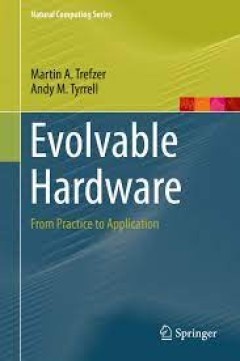
Evolvable Hardware From Practice to Application
This book covers the basic theory, practical details and advanced research of the implementation of evolutionary methods on physical substrates. Most of the examples are from electronic engineering applications, including transistor-level design and system-level implementation. The authors present an overview of the successes achieved, and the book will act as a point of reference for both acad…
- Edition
- -
- ISBN/ISSN
- 978-3-662-44616-4
- Collation
- 109 b/w illustrations, 78 illustrations in colour
- Series Title
- -
- Call Number
- -

International relations in the cyber age :the co-evolution dilemma
A foundational analysis of the co-evolution of the internet and international relations, examining resultant challenges for individuals, organizations, firms, and states. In our increasingly digital world, data flows define the international landscape as much as the flow of materials and people. How is cyberspace shaping international relations, and how are international relations shaping cyber…
- Edition
- -
- ISBN/ISSN
- 9780262349710
- Collation
- 1 online resource (432 pages)
- Series Title
- -
- Call Number
- -
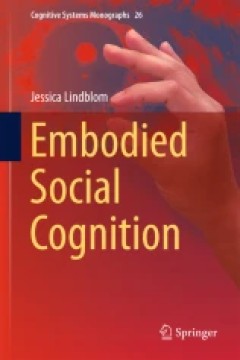
Embodied Social Cognition
This book clarifies the role and relevance of the body in social interaction and cognition from an embodied cognitive science perspective. Theories of embodied cognition have during the last decades offered a radical shift in explanations of the human mind, from traditional computationalism, to emphasizing the way cognition is shaped by the body and its sensorimotor interaction with the surroun…
- Edition
- 1
- ISBN/ISSN
- 978-3-319-20315-7
- Collation
- 4 b/w illustrations, 34 illustrations in colour
- Series Title
- -
- Call Number
- -
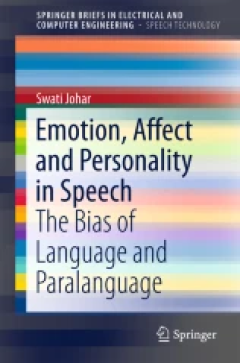
Emotion, Affect and Personality in Speech the Bias of Language and Paralanguage
This book explores the various categories of speech variation and works to draw a line between linguistic and paralinguistic phenomenon of speech. Paralinguistic contrast is crucial to human speech but has proven to be one of the most difficult tasks in speech systems. In the quest for solutions to speech technology and sciences, this book narrows down the gap between speech technologists and …
- Edition
- -
- ISBN/ISSN
- 978-3-319-28047-9
- Collation
- 3 b/w illustrations
- Series Title
- -
- Call Number
- -

Connected Code: Why Children Need to Learn Programming
Why every child needs to learn to code: the shift from "computational thinking" to computational participation.OCLC-licensed vendor bibliographic record.
- Edition
- -
- ISBN/ISSN
- 0262319241
- Collation
- 1 online resource.
- Series Title
- -
- Call Number
- -

An aesthesia of networks :conjunctive experience in art and technology
"Today almost every aspect of life for which data exists can be rendered as a network. Financial data, social networks, biological ecologies: all are visualized in links and nodes, lines connecting dots. A network visualization of a corporate infrastructure could look remarkably similar to that of a terrorist organization. In An Aesthesia of Networks, Anna Munster argues that this uniformity ha…
- Edition
- -
- ISBN/ISSN
- 9780262313506
- Collation
- 1 online resource.
- Series Title
- -
- Call Number
- -
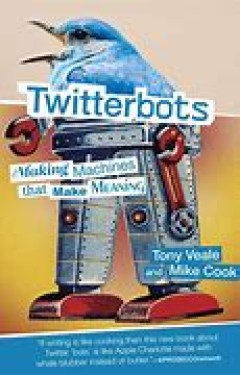
Twitterbots: Making Machines that Make Meaning
The world of Twitterbots, from botdom's greatest hits to bot construction to the place of the bot in the social media universe.OCLC-licensed vendor bibliographic record.
- Edition
- -
- ISBN/ISSN
- 9780262346436
- Collation
- 1 online resource (352 pages) :illustrations
- Series Title
- -
- Call Number
- -

Strategic Negotiation in Multiagent Environments
A Bradford book.""As computers advance from isolated workstations to linked elements in complex communities of systems and people, cooperation and coordination via intelligent agents become increasingly important. Examples of such communities include the Internet, electronic commerce, health institutions, electricity networks, and digital libraries. Sarit Kraus is concerned here with the cooper…
- Edition
- -
- ISBN/ISSN
- 9780262277594
- Collation
- 1 online resource (xiv, 266 pages) :illustrations.
- Series Title
- -
- Call Number
- -
 Computer Science, Information & General Works
Computer Science, Information & General Works  Philosophy & Psychology
Philosophy & Psychology  Religion
Religion  Social Sciences
Social Sciences  Language
Language  Pure Science
Pure Science  Applied Sciences
Applied Sciences  Art & Recreation
Art & Recreation  Literature
Literature  History & Geography
History & Geography